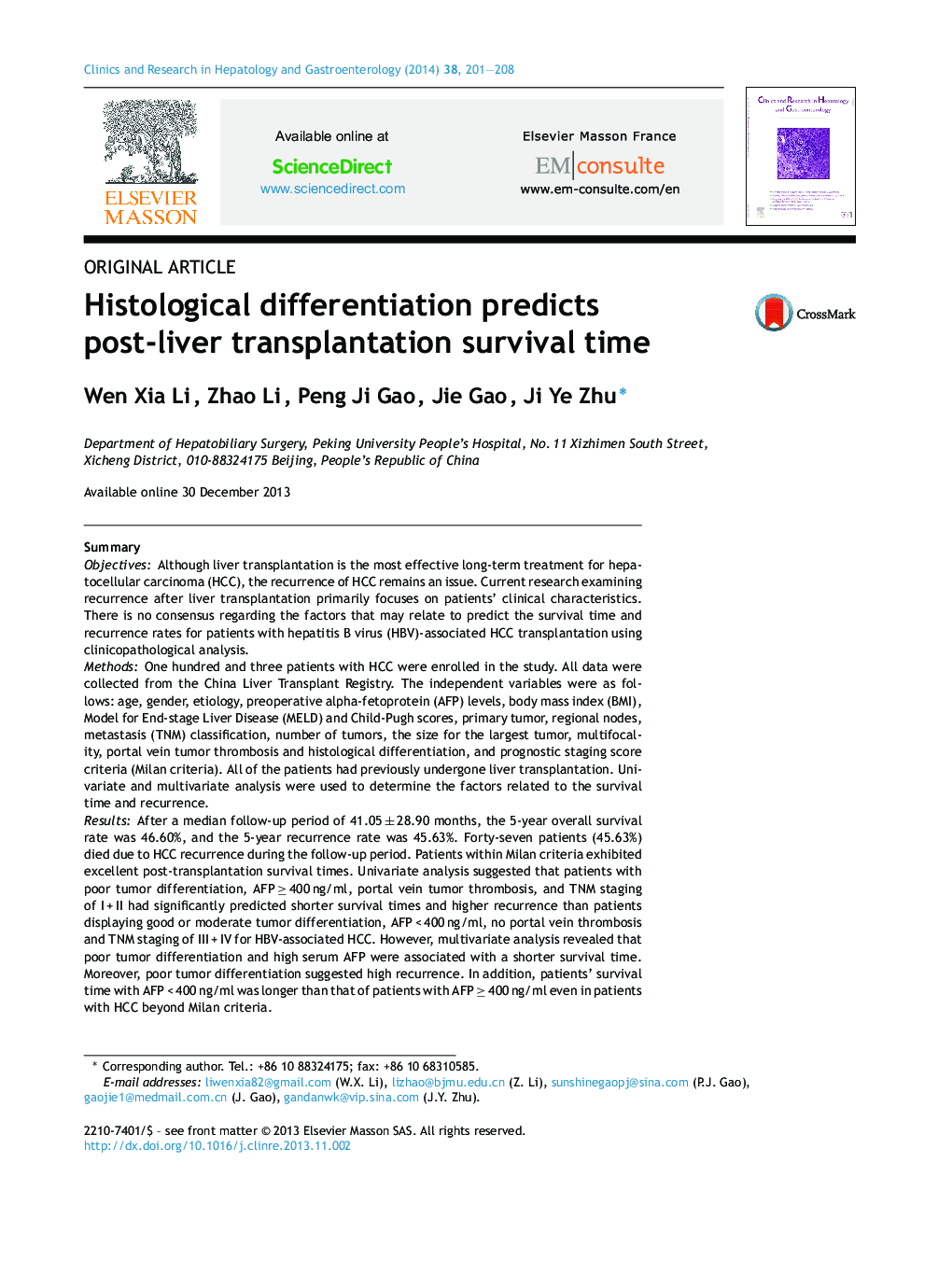| Article ID | Journal | Published Year | Pages | File Type |
|---|---|---|---|---|
| 3286647 | Clinics and Research in Hepatology and Gastroenterology | 2014 | 8 Pages |
SummaryObjectivesAlthough liver transplantation is the most effective long-term treatment for hepatocellular carcinoma (HCC), the recurrence of HCC remains an issue. Current research examining recurrence after liver transplantation primarily focuses on patients’ clinical characteristics. There is no consensus regarding the factors that may relate to predict the survival time and recurrence rates for patients with hepatitis B virus (HBV)-associated HCC transplantation using clinicopathological analysis.MethodsOne hundred and three patients with HCC were enrolled in the study. All data were collected from the China Liver Transplant Registry. The independent variables were as follows: age, gender, etiology, preoperative alpha-fetoprotein (AFP) levels, body mass index (BMI), Model for End-stage Liver Disease (MELD) and Child-Pugh scores, primary tumor, regional nodes, metastasis (TNM) classification, number of tumors, the size for the largest tumor, multifocality, portal vein tumor thrombosis and histological differentiation, and prognostic staging score criteria (Milan criteria). All of the patients had previously undergone liver transplantation. Univariate and multivariate analysis were used to determine the factors related to the survival time and recurrence.ResultsAfter a median follow-up period of 41.05 ± 28.90 months, the 5-year overall survival rate was 46.60%, and the 5-year recurrence rate was 45.63%. Forty-seven patients (45.63%) died due to HCC recurrence during the follow-up period. Patients within Milan criteria exhibited excellent post-transplantation survival times. Univariate analysis suggested that patients with poor tumor differentiation, AFP ≥ 400 ng/ml, portal vein tumor thrombosis, and TNM staging of I + II had significantly predicted shorter survival times and higher recurrence than patients displaying good or moderate tumor differentiation, AFP < 400 ng/ml, no portal vein thrombosis and TNM staging of III + IV for HBV-associated HCC. However, multivariate analysis revealed that poor tumor differentiation and high serum AFP were associated with a shorter survival time. Moreover, poor tumor differentiation suggested high recurrence. In addition, patients’ survival time with AFP < 400 ng/ml was longer than that of patients with AFP ≥ 400 ng/ml even in patients with HCC beyond Milan criteria.ConclusionsTumor biological characteristics especially histological differentiation and serum AFP level should be considered before performing liver transplantation (LT) for patients with HBV-associated HCC. Furthermore, the AFP level and histological differentiation provide a new method for assessing HCC patient survival time after LT. Histological differentiation independently predicted post-transplantation survival time and recurrence rate for patients with HBV-associated HCC.
